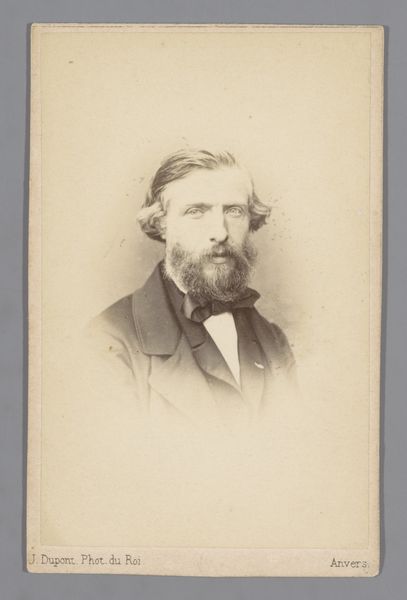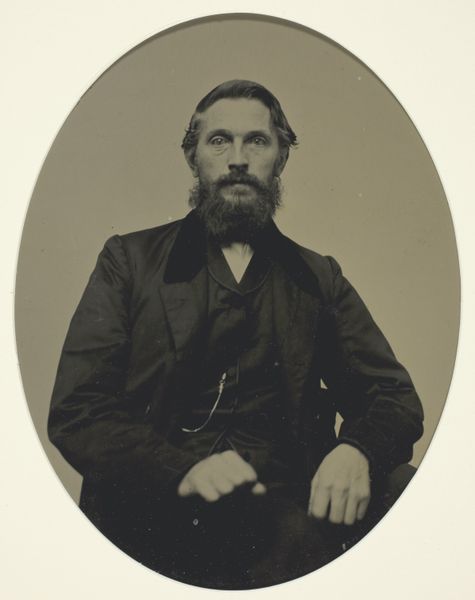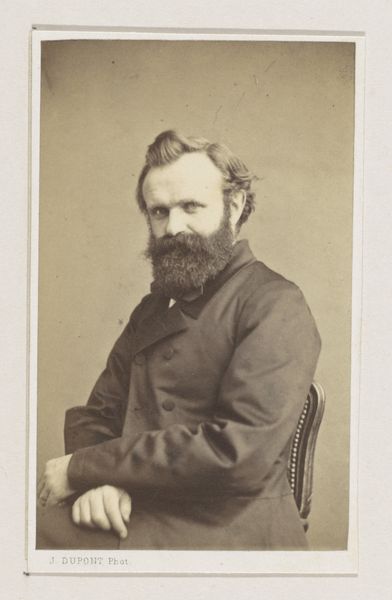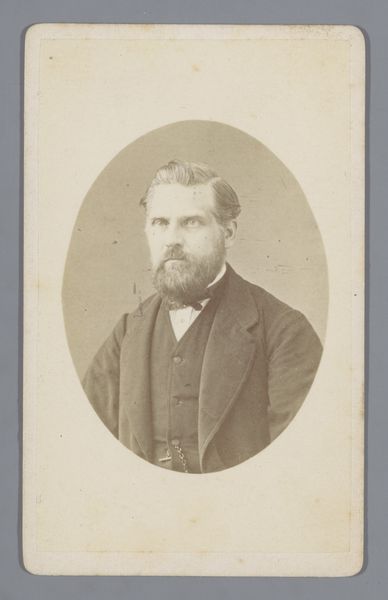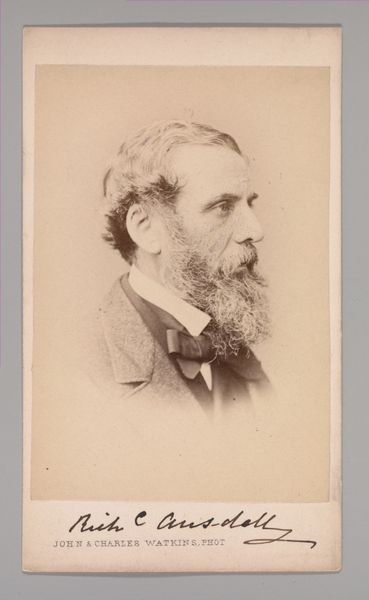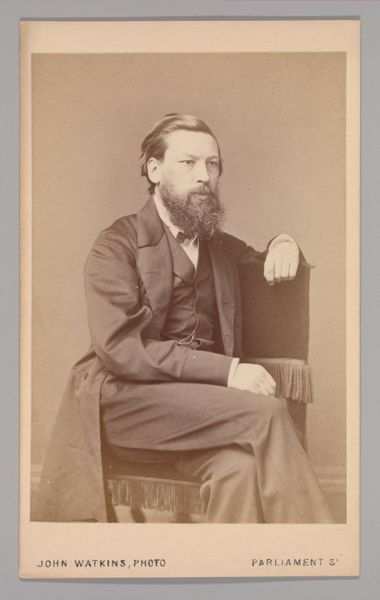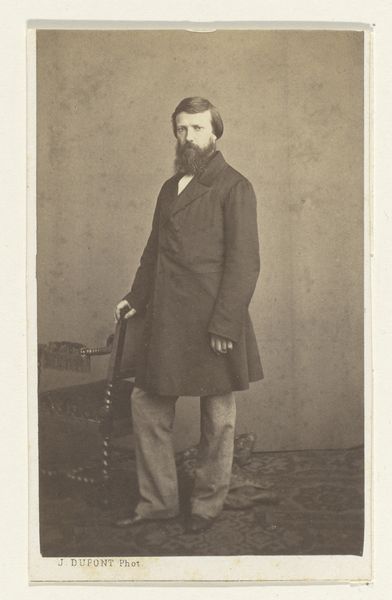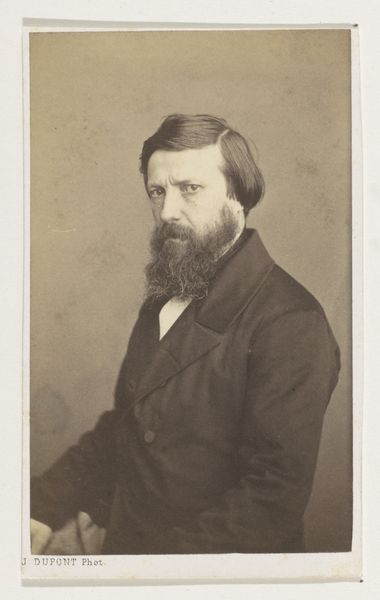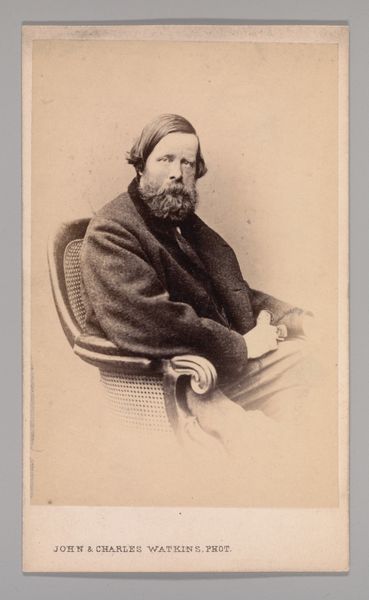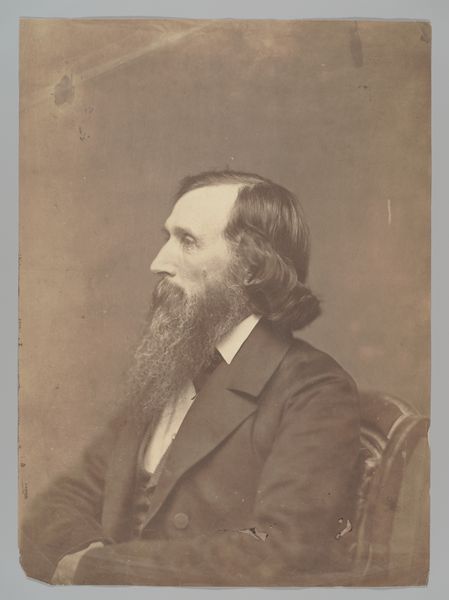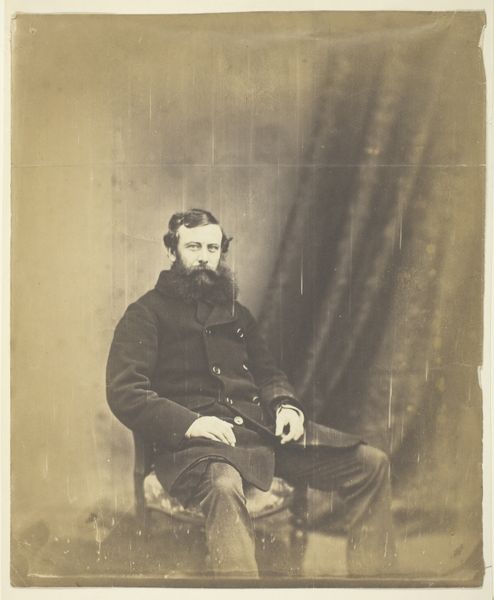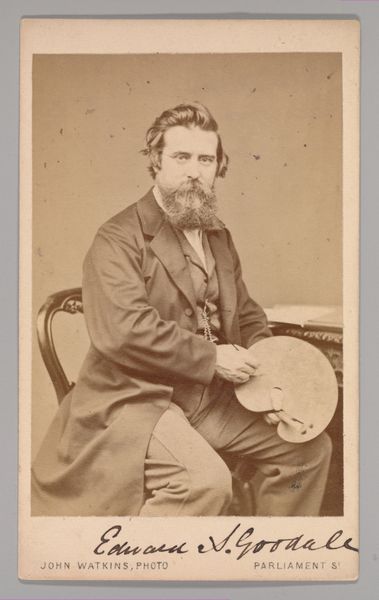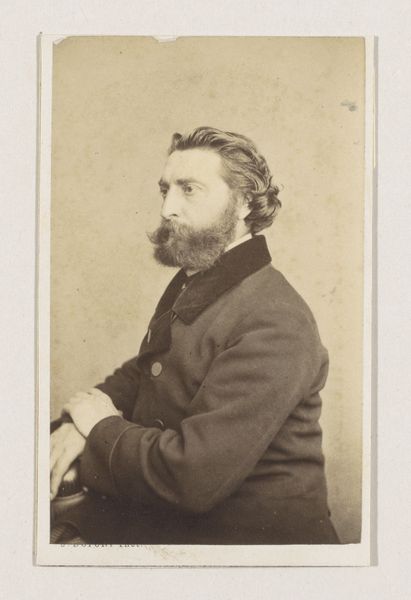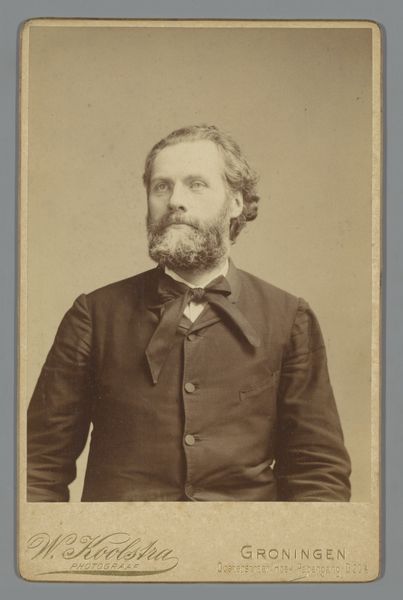
daguerreotype, photography, gelatin-silver-print, graphite
#
portrait
#
16_19th-century
#
daguerreotype
#
photography
#
historical photography
#
gelatin-silver-print
#
19th century
#
united-states
#
graphite
#
portrait art
Dimensions: 3 9/16 x 2 1/8 in. (9.05 x 5.4 cm) (image)4 x 2 1/2 in. (10.16 x 6.35 cm) (mount)
Copyright: Public Domain
This photograph of Dr. Lewis Albert Sayre was created by Jeremiah Gurney, a prominent New York photographer. It is a 'carte de visite,' a calling card, made using the wet collodion process, which dominated photography in the mid-19th century. To make a 'carte de visite,' a glass plate would be coated with light-sensitive chemicals, exposed in a large camera, and then developed quickly. This negative was then used to print multiple paper copies, in this case, a warm, sepia-toned image. The process allowed for mass production, and became extremely popular. Consider the labor involved: from the preparation of the chemicals to the printing and mounting of the final image. This was repeated endlessly, with photographers like Gurney operating as skilled artisans within a burgeoning industry. Photography democratized portraiture, making it accessible to a wider public, yet it also relied on the division of labor and mass production characteristic of industrial capitalism. This photograph is not just a portrait, but a material record of a specific moment in technological and social history.
Comments
No comments
Be the first to comment and join the conversation on the ultimate creative platform.
